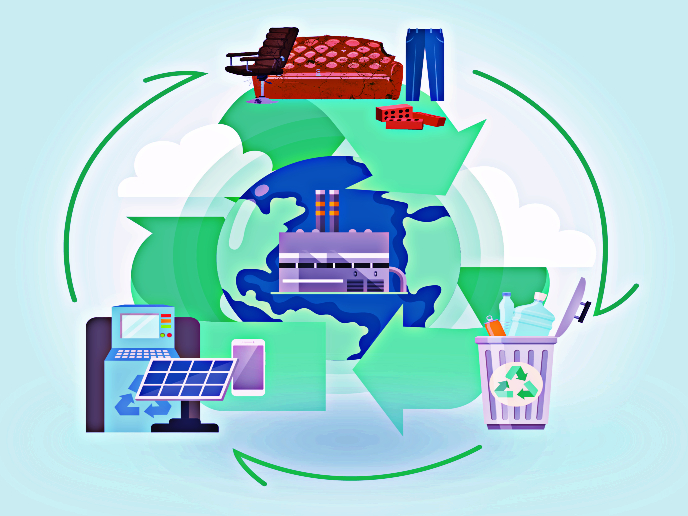Circular economy innovations for industrial and urban waste management
Europe’s growing prosperity has resulted in the extraction and use of more resources, thereby producing more waste. Currently, an average citizen generates around 5 tonnes of waste, of which only a limited amount is recycled, most of the remainder is landfilled or incinerated. The challenge of managing increasing quantities of waste, particularly from growing urban areas, represents a significant cost to society and puts pressure on the natural environment and climate change. But this discarded material also represents a valuable resource, which can be retained in the economy by embracing a more circular economy approach.
A commitment to waste reduction
The projects support the new political priorities of the von der Leyen Commission as set out in the European Green Deal(opens in new window). They make an important contribution to the implementation of the new Circular Economy Action Plan(opens in new window) and the European Strategy for Plastics in a Circular Economy(opens in new window). In addition, the Waste Framework Directive(opens in new window) establishes the basic concepts related to waste management, defining waste, recycling and recovery. The revised legislative framework on waste(opens in new window), which entered into force in July 2018, set clear targets for reduction of waste and establishes an ambitious and credible long-term path for waste management and recycling. The EU is thus committed to implementing the principles of the waste management hierarchy(opens in new window), which promotes the prevention of waste, its reuse and recycling. This requires the development and deployment of eco-innovative solutions and resource-efficient products, processes and services.
New approaches
In this CORDIS Results Pack we showcase innovative solutions proposed by projects funded by the EU through the Horizon 2020 programme that promote waste reduction and improved resource efficiency in the textile, construction, photovoltaic, steel industry, bulky and urban waste sectors. The RESYNTEX project tackled textile waste by creating a new circular economy concept that transforms it into feedstock for the chemical and textile industries. Another project, BAMB, is reducing construction and demolition waste through a new standardised circular way of designing buildings, enabling the construction sector to recover, repair and reuse building materials. Meanwhile, CABRISS developed a circular economy for not only the photovoltaic, but also the electronic and glass industries, to form new business opportunities through the recovery of high-value materials. FISSAC demonstrates a new paradigm built on an innovative industrial symbiosis model with a zero-waste approach to the construction and demolition value chain. Then we have URBANREC that designed an innovative bulky waste management system to enhance waste prevention and encourage new forms of waste treatment to obtain high added-value recycled products. Waste4Think used information and communication technologies to improve all stages of the waste value chain, adapting a global approach focused on citizen participation to move towards a circular economy and build more sustainable, eco-friendly cities. CIRC-PACK developed numerous innovations to support a circular cradle-to-cradle economy within the plastic packaging value chain. FORCE worked to minimise the leakage of materials from the linear economy and towards a circular economy with focus on plastic, wood, WEEE and biowaste & food waste in four European cities. Finally, DECISIVE created new decentralised solutions for biowaste management.



